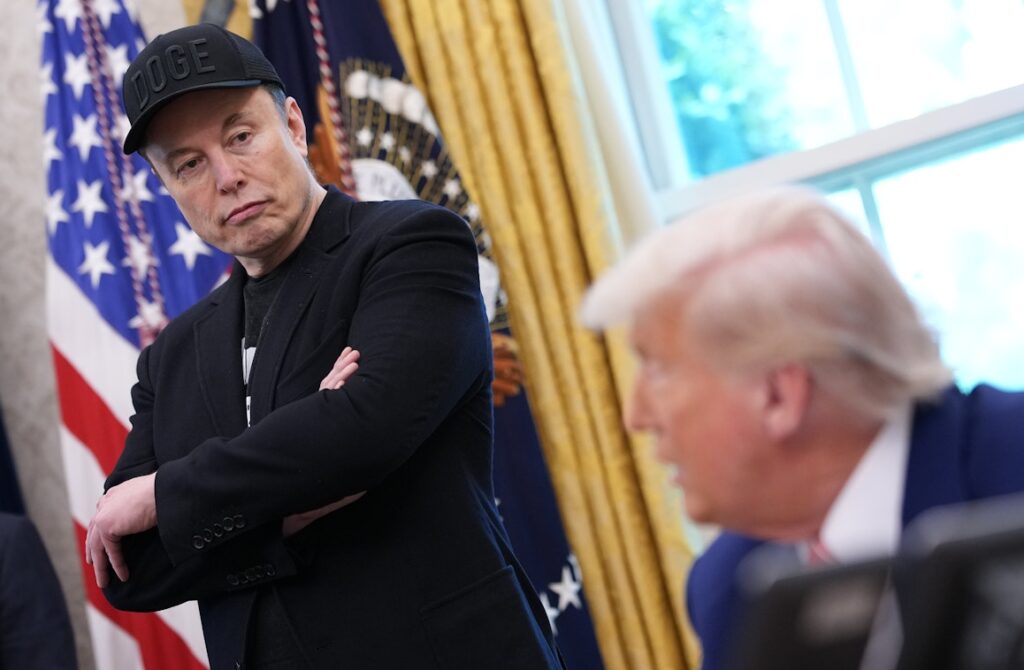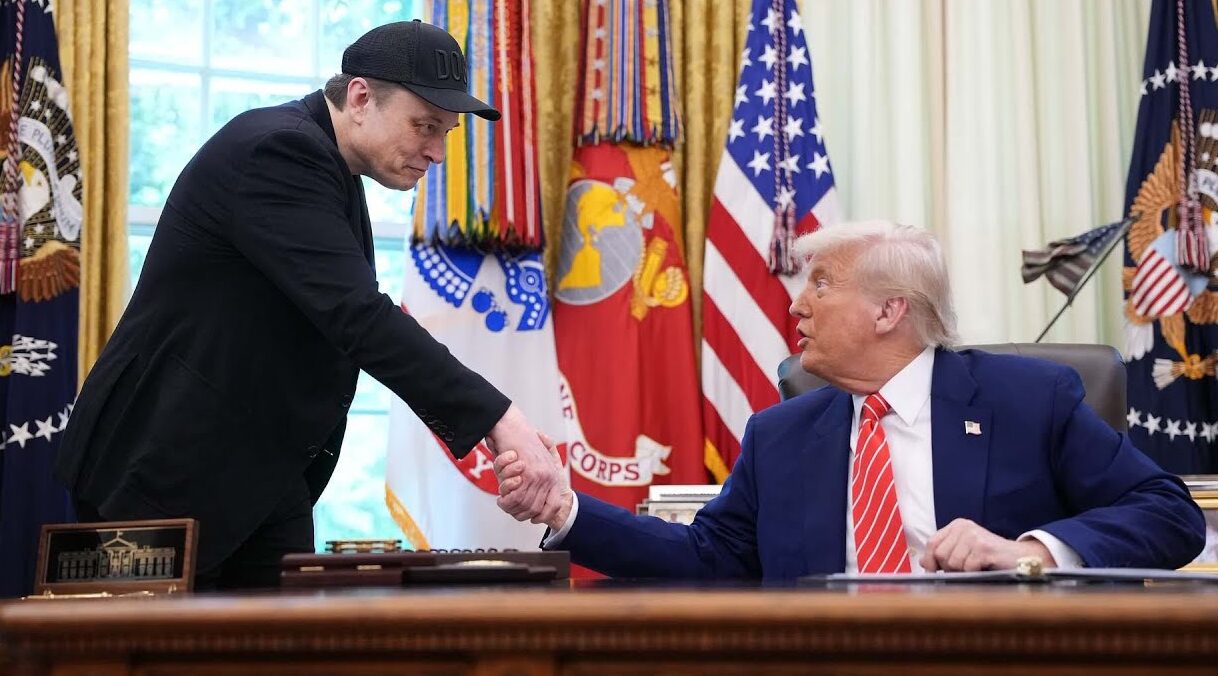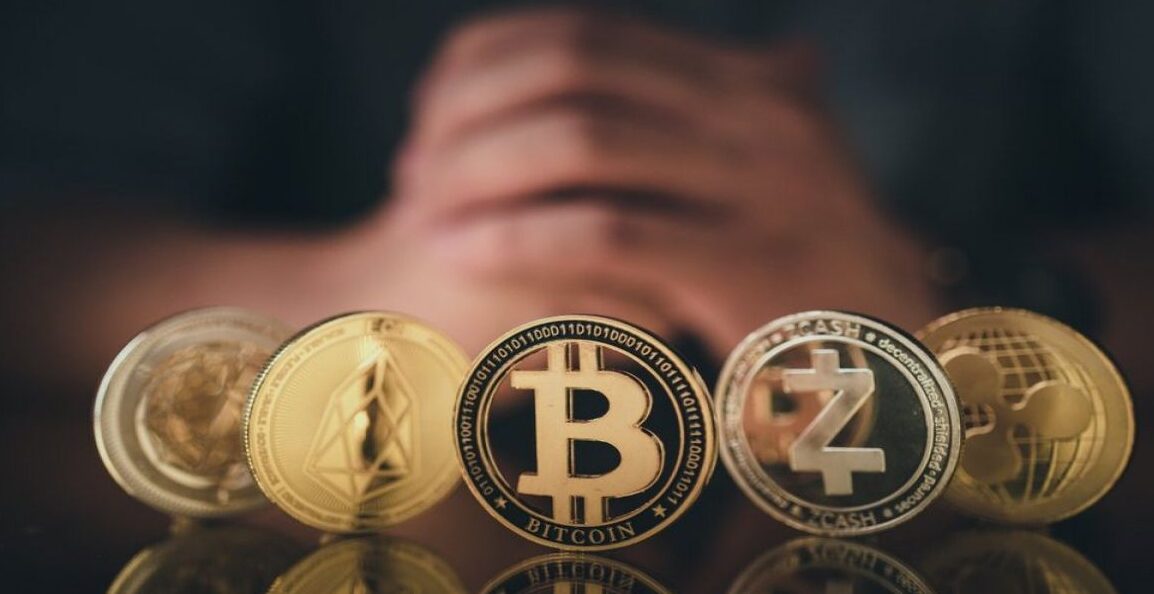Trump Musk Bitcoin feud Personal disputes can trigger large shifts in the bitcoin market, which is notoriously unstable. A highly public and unexpected fight between former U.S. President Donald Trump and tech entrepreneur Elon Musk has caused a big stir in the digital asset industry. As the fight played out on social media and news sites, the price of Bitcoin dropped sharply, causing more than $308 million in long bets to be sold.
This essay breaks down what happened before the Bitcoin meltdown, looks at how the crypto market is overly sensitive to powerful people, and discusses why these kinds of events can have effects that go beyond short-term price changes.
The Catalyst: A public fight between Trump and Musk
A fight between Donald Trump and Elon Musk, two of the most powerful public characters in the world, was sure to have an effect in a time when online influence can move markets. The fight started when Trump called Musk “another bullsh*t artist” at a rally in Texas. This was after Musk said he had never voted Republican before and would back Ron DeSantis in the 2024 campaign.
Musk said on X (previously Twitter) that Trump should “sail into the sunset” instead of running for politics again. Their fight immediately got worse, spreading to several online platforms and drawing in millions of followers.
The fight was political on the surface, but it had economic effects, especially in the bitcoin market, where trust, perception, and social narratives play a big role in how people feel.
Bitcoin’s first response was a drop in price and liquidations
Bitcoin (BTC) dropped rapidly not long after the fight got a lot of attention in the news. It broke the psychological support level of $65,000 and eventually plummeted below $62,000. Within hours, crypto derivatives data from sites like Coinglass showed that key exchanges like Binance, Bybit, and OKX had closed out $308 million in Bitcoin long bets. Most of these liquidations were in leveraged positions, where traders had wagered that the market would keep going up.
It wasn’t just technical clues that led to this. Traders and investors saw the rift between Trump and Musk as a warning that other important crypto influencers were also unstable. In the world of cryptocurrencies, both Trump and Musk have a lot of power. Trump has a lot of power because of his controversial views on regulation, and Musk has a lot of power since his tweets have historically influenced the pricing of assets like Dogecoin (DOGE) and Bitcoin itself.
What the Trump-Musk Feud Means for Bitcoin
People have thought for a long time that Bitcoin is a non-political alternative to regular money. But the digital money is still affected by geopolitics and societal factors. Elon Musk has been a big part of the mainstream story about crypto. For example, Tesla bought $1.5 billion worth of Bitcoin in 2021, and he stopped accepting Bitcoin payments because of environmental concerns. Donald Trump, on the other hand, has gone from labeling Bitcoin a “scam” to making Trump-branded NFTs, which drew his base closer to blockchain technology.
Their fight makes it hard to know what will happen with political endorsements, tech advances, and future partnerships in the crypto world. Musk’s increasing interest in AI and blockchain platforms like XPayments, along with Trump’s impact on financial regulation, means that their friendship is more than just a tabloid tale; it’s a sign to the market.
LSI Keywords and Semantic Associations at Work
To get a better picture of the bigger picture, it’s important to point out the latent semantic indexing (LSI) keywords that affect how people search and how the market interprets things. Google Trends has shown a big rise in searches for terms like “crypto crash today,” “Bitcoin liquidation news,” “Musk and Trump crypto,” and “Bitcoin market influencers.”
These LSI keywords are more than simply SEO tactics; they show that people are worried about the stability of the market, the influence of famous people, and the political ties of cryptocurrencies. For example, traders looking for the explanation for the dip in Bitcoin prices or news about Trump and Musk in the crypto world are clearly showing that they want to connect these events to real financial consequences.
Market Psychology and the Volatility of Influencers
Market psychology is more important in the crypto world than it is in regular finance. Digital celebrities on sites like YouTube, X, and Reddit may have a huge impact on whole market trends. The dip in Bitcoin’s price after the Trump-Musk feud shows how easily investor opinion can change, especially when people think that influencers are not credible.
The Federal Reserve and the SEC make judgments in a formal way, but Bitcoin’s market fluctuations are typically based on decentralized social signals. In 2021, one tweet from Musk was enough to drop the market by more than 10%. Trump’s words have the same effect on regulatory expectations and investor behavior, especially among conservative audiences.
Wider Effects on Altcoins and Crypto Mood
Bitcoin took the worst hit from the price decline, but other cryptocurrencies including Ethereum (ETH), Solana (SOL), and Avalanche (AVAX) also lost a lot of value. The animosity between Trump and Musk seems to have made people more worried that political instability could stop popular adoption or lead to stronger government monitoring.
Also, the liquidation cascade didn’t just happen to BTC. Ethereum lost around $100 million, and memecoins like Dogecoin, which are often thought to be a sign of Musk’s mood, plunged more than 12% in just 24 hours. These changes show how interrelated crypto assets are and how quickly anxiety spreads across all types of assets.
Concerns about regulations and institutions
This incident could speed up talks in Washington, D.C. and on Wall Street about how to regulate cryptocurrencies. If powerful people like Trump and Musk can accidentally cause market swings worth billions of dollars, institutional investors may think twice about the risks of digital assets’ volatility. After past market-moving events, the SEC, CFTC, and Congressional committees have all said that influencer activity needs to be looked into more closely.
The fight also brings up the question of whether decentralized finance (DeFi) can really be apart from centralized social influence. It’s ironic that Bitcoin, which was made to be a decentralized, trustless network, can nevertheless be rocked by people with huge online followings who are in charge.
What This Means for People Who Invest in Crypto
This event serves as a reminder to both retail and institutional investors that the crypto market can be volatile based on how people feel about it. Now more than ever, it’s crucial to use tools like stop-losses and reduced leverage to spread out your investments and limit your risk. Traders who didn’t follow these best practices had their positions forcefully closed, which made the losses much worse.
The Trump-Musk story is also a lesson on the peril of telling stories. When figuring out how risky crypto is, investors should look at more than just technical indications and on-chain measurements. They should also think about real-world events like elections and public feuds.




